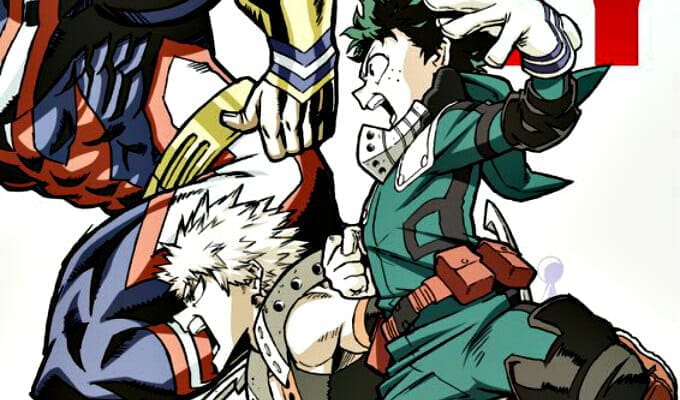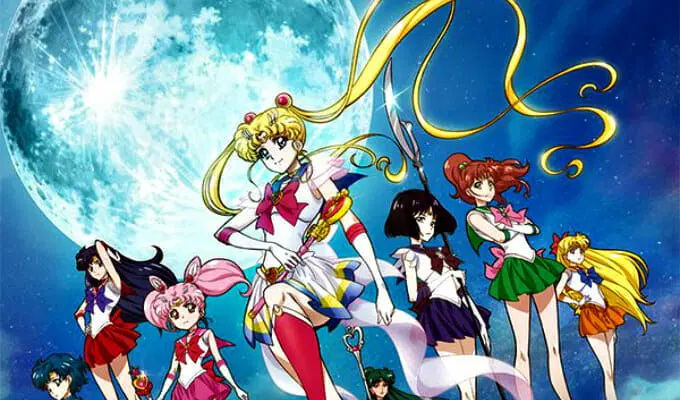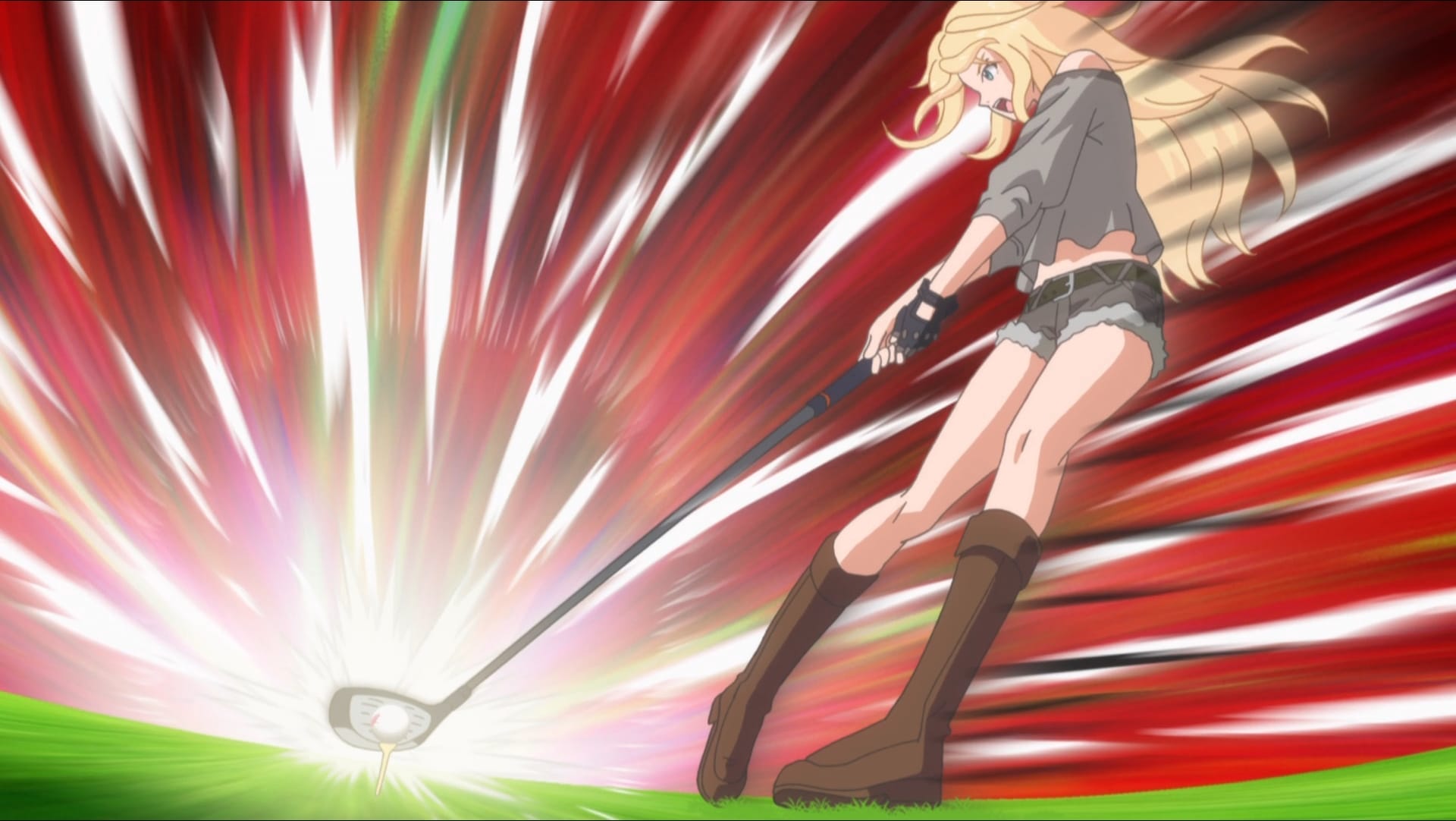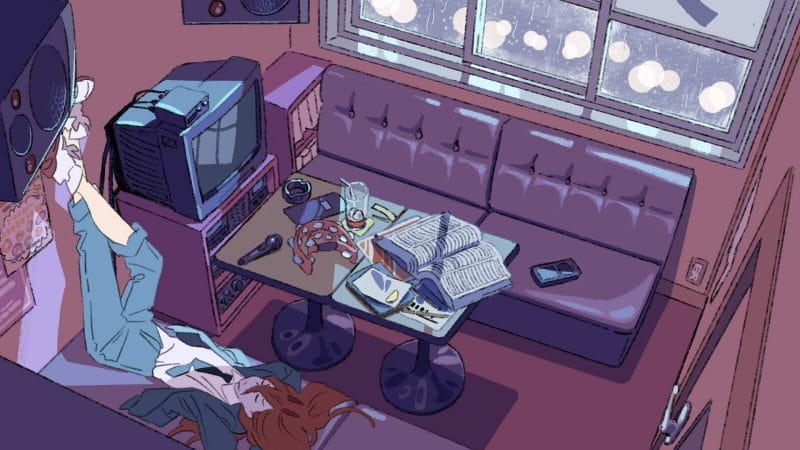 The harem genre has long been a staple of the anime landscape. Light-hearted tales of an average Joe that manages to gain favor of two, three, even a dozen attractive ladies provided fodder for filthy comedies and sweet romances alike. The genre’s been tweaked and updated, as fads like maids and witches rolled through Japanese pop culture. Rosario + Vampire seeks to bring about the latest craze, with a truly monstrous twist on the formula. In Rosario’s case, though, an interesting concept simply may not be enough to bring about the next major trend in the genre.
The harem genre has long been a staple of the anime landscape. Light-hearted tales of an average Joe that manages to gain favor of two, three, even a dozen attractive ladies provided fodder for filthy comedies and sweet romances alike. The genre’s been tweaked and updated, as fads like maids and witches rolled through Japanese pop culture. Rosario + Vampire seeks to bring about the latest craze, with a truly monstrous twist on the formula. In Rosario’s case, though, an interesting concept simply may not be enough to bring about the next major trend in the genre.

Rosario + Vampire revolves around the daily life of Tsukune Aono: an under-achieving teen that recently graduated from middle school. Unfortunately for Tsukune, his scores aren’t even enough to get into the lowest of low-level high schools, so he can look forward to a year as a complete failure in life. His luck begins to change shortly after graduation, when his father presents admission papers to Yokai Academy: a mysterious school that seems to have incredibly lax standards for admission. Fate intervenes with young Tsukune upon his arrival, as a mysterious beauty literally comes crashing into his life. On a bicycle. The girl, known as Moka Akashiya, is a sweet girl with a hidden secret. Unlike Tsukune, Moka’s not quite human. In fact, none of the students at Yokai Academy are. The campus is a secret school for monsters, demons, and other things that go bump in the night to prepare them for life in the human world. Humans aren’t allowed to attend, and are to be killed on sight. So, to get through the school year, Tsukune will need to keep his own identity under wraps, while dealing with the various ghouls and goblins that dare to get between him and the vampire of his dreams.

Rosario + Vampire is living proof that a mildly interesting concept and a few post-its that say “Big boobs! Big action! I love it!” aren’t enough to make a quality show. The series seems trapped between three identities, as it struggles to balance raunchy humor, high school fluff, and fast-paced action through its entire run. The show’s inability to stick to a single format leads to a generally mediocre product that shows flashes of brilliance, but ultimately fails to excite. As a comedy, the show relies on a handful of jokes that wear thin quickly. A number of jokes that focus by secondary cast members tend to fall flat, or come off as utterly creepy. As a puffy high school dramedy, Rosario suffers from a weak plot that goes nowhere for the show’s first nine episodes. This is compounded by slow character growth, and a weak, generally ineffective main character. As an action show, the biggest obstacle is time. The show’s battle sequences are fast-paced, well-choreographed, and are arguably the strongest of the dueling elements. These segments are woefully short, though, and clock in at an average ninety seconds per episode.
 The show’s glaring weaknesses are bared even further, thanks to a generally weak cast. Tsukune is a weak, indecisive fop that displays an impeccable lack of common sense. Through the show’s run, he is used, manipulated, and outright abused by the secondary cast. He’s thrown into compromising positions, and gleefully walks into plots that most children would be able to deduce. The secondary cast proves to be little better, as every harem archetype from the girl next door to the loli-bait are present and accounted for. The faculty members are little more than fodder for sight gags, and villains through the show are simple one-dimensional throw-aways. There are few real surprises in the line-up, and even fewer strong characters that can be discerned.
The show’s glaring weaknesses are bared even further, thanks to a generally weak cast. Tsukune is a weak, indecisive fop that displays an impeccable lack of common sense. Through the show’s run, he is used, manipulated, and outright abused by the secondary cast. He’s thrown into compromising positions, and gleefully walks into plots that most children would be able to deduce. The secondary cast proves to be little better, as every harem archetype from the girl next door to the loli-bait are present and accounted for. The faculty members are little more than fodder for sight gags, and villains through the show are simple one-dimensional throw-aways. There are few real surprises in the line-up, and even fewer strong characters that can be discerned.

Despite the Rosario’s mediocre content, the show manages to provide a decent, if not forgettable soundtrack. The show’s background music is comprised of a series of bouncy, peppy pieces that sell the happy-go-lucky mood of the show. While they do their job, these pieces pale in comparison to the vocal themes that are scattered through the show. Over half a dozen vocal pieces were inserted into the show, which range from cheerful pop ditties to slower, piano-heavy melodies. These pieces give much-needed character to what could have been an otherwise unremarkable score. The show’s opener and closer, Cosmic Love and Dancing in the velvet moon by Nana Mizuki are, energetic pieces that serve as strong book-ends to the show itself.
Rosario + Vampire is a regrettable entry into the anime world. The show’s premise offered a lot of promise that was ultimately squandered by lazy writing and a desire to cram as many genres as possible into a 12-episode show. While there are certainly worse shows on the market, there are many titles that can fill the gaps Rosario fits into far more effectively.
Rosario + Vampire is distributed in America by FUNimation.
The series can be purchased at Right Stuf
Thanks to FUNimation for providing a review copy!










